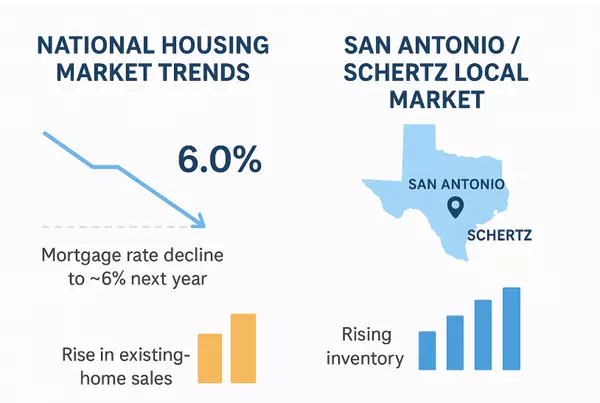The Smiths in 2025

No, there's no need to rent Victorian-era attire for caroling anymore. AI image generation has really advanced this past year, so I thought I’d just take very plain studio portraits and then transport us through time and around the globe digitally. I’ve long been a big photoshopper, and this year's big tech leaps have finally brought things I’d only dreamed of into reality (last year’s photo was real btw). If you’re so inclined, here’s 101 more card runner-ups extended from our Christmas portrait, as well as other earlier time traveling portraits and wild AI escapades.

Highlights of the year… besides the kids growing prowess in math, coding, robotics, and most academics, Logan has become a total stud on the chess board (and now finally beating me more than half the time), and Addie has really taken to art this year. The kids also took on Kung Fu, Tai Chi, JiuJitsu, Hip Hop Dance and Robotics throughout the year. If we’re rounding, Logan grew a foot this year, and is now taller than Hillary! Addie got her braces off. Wow what a smile!

We also decided to stretch their Chinese education with a trip back to China, after 15+ years away. I made daily challenges for the kids to try using their language, and we also visited multiple factories with plans to finish a product and open a business they can run. Would you consider purchasing a plush mockingbird that mocks whatever you say? :-) That’s the first product idea in the works. We’d love any feedback!

China was already modernizing way back then, but now it seems that there are some ways in which it's even more modern than America. I could have gone the entire trip without cash, and the majority portion (in some cities) of electric cars have made for less noisy streets and noticeably cleaner air. Shiny new subway systems are extensive, and high speed rail trains (to just about anywhere) are frequent, easy, and affordable.

Our good friend Valerie also came with us! We were able to rendezvous with old Chinese friends for a couple of days as well!

Because our work schedules only provide certain windows of availability though, we (like crazy people) went to lots of tourist destinations during the highest time of the year. Hillary and I had seen China crowds before, but sheesh, not like this…


The kids weren’t phased by any challenge though, and I was so proud of them. They were comfortable and confident to do things on their own, tried exotic foods (and even LIKED some of it), lugged around heavy backpacks, hiked up several tall mountains, and walked 264 miles with very little complaining.

Other whimsies throughout the year included a trip to Six Flags with my sister’s family, May (the) 4th festivities, Hillary & Addie’s fun with Chinese glamour shots, and Addie getting her hair dyed for $11! We also went to the circus, played in some Austin snow, and as usual a pilgrimage to Enchanted Rock is ordained to happen!


We’ve also now seen “...the range, where the deer and the antelope play.” In the Dakota’s we were able to knock out a few more national parks, and three more states. We’ll need to save for a while for the others, unless… If anyone has an empty seat on their plane or yacht, we’re game for finishing off Hawaii, Alaska, or Kansas!

For Halloween we went as “Inside Out” characters (Joy, Anger, Disgust, & Fear). It was good enough to win our neighborhood block party content too!

 Hillary and I? Hillary, lover of all things furry, enjoyed rescuing stranded baby raccoons in our tight attic spaces. More recently, our dog’s passing has been difficult for her. On the professional side of life, she’s expanded a whole wing of our business, with awarehouse full of staging and more offerings than before, for our seller clients. She’s also having one of her best years in the biz. I'm doing less real estate these days, while Hillary is doing more. I've been putting a portion of my time to working on a master's in biotech & stem cell rejuvenation, and homeschooling the kids. Aside from the math proficiency they’ve helped me reclaim, it’s also been a joy reading adult books with them. In order to put our learning into action more, we’ve also been going all the way and publishing what books we write. Logan even wrote three college level essays in critical thinking class, which we’re extremely proud of!
Hillary and I? Hillary, lover of all things furry, enjoyed rescuing stranded baby raccoons in our tight attic spaces. More recently, our dog’s passing has been difficult for her. On the professional side of life, she’s expanded a whole wing of our business, with awarehouse full of staging and more offerings than before, for our seller clients. She’s also having one of her best years in the biz. I'm doing less real estate these days, while Hillary is doing more. I've been putting a portion of my time to working on a master's in biotech & stem cell rejuvenation, and homeschooling the kids. Aside from the math proficiency they’ve helped me reclaim, it’s also been a joy reading adult books with them. In order to put our learning into action more, we’ve also been going all the way and publishing what books we write. Logan even wrote three college level essays in critical thinking class, which we’re extremely proud of!
I hope you guys have also had a year of growth, learning, and flourishing. We’d love to hear from you! Merry Christmas!
If you enjoy watching the kids grow, here are the ghosts of Christmas past:
Recent Posts










GET MORE INFORMATION

